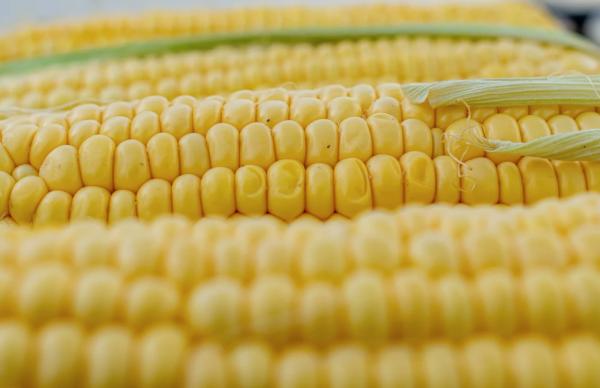Post-COVID-19, the once-ferocious debate surrounding genetically engineered (GE) crops seems like a fading memory, especially with the anti-GMO movement rapidly losing its cultural and political influence. The organizations that once propped up this technophobic campaign have either hitched their agenda to the pandemic in a bid to remain relevant or just given up on crop biotech opposition altogether.
While we should celebrate the anti-GMO movement's disintegration, we need to recognize that countries around the world continue to forgo the benefits of crop biotechnology because they took activist groups like Greenpeace seriously for so many years. How serious are these consequences? According to a new analysis published by The Council for Agricultural Science and Technology (CAST), very serious. [1]
Higher food prices, more poverty
Many commentators have documented the anti-GMO movement's tragic impact in the developing world. Denying poor farmers access to tools that would help them feed their children and communities is beyond cruel, especially since some support for that effort comes from Western social justice activists so vocally opposed to “colonialism.” But the often-overlooked point is that anti-biotech activism doesn't just harm people in remote countries like Sri Lanka; everybody loses when misguided ideologues influence food and farming policy.
As a rule, products made from GE ingredients are substantially cheaper than their counterparts. This is because farmers who utilize biotechnology generally produce more of whatever they grow, which tends to push down consumer food prices. CAST reported that US premiums for “non-GMO products ranged from 9.8% to 61.8% and premiums for organic, which is implicitly non-GMO, ranged from 13.8% to 91%.”
Americans don't have to buy non-GMO products, of course, but this sets up an interesting comparison. If America were to ban biotech crops, CAST estimated that it could boost food prices by $14 billion per year and cost the US economy $200 million – $4.9 billion annually. Consider that many countries still prohibit the production of GE crops, and you start to see the economic consequences of restricting access to biotechnology, or any yield-boosting technology for that matter. [2]
The only way to mitigate these costs is to import large quantities of GE grain from other nations, which the European Union does despite its ostensible preference for organic food. Still, any unnecessary regulation carries substantial downsides, the report explained:
Trade barriers targeted at GMOs reduce access to food, limit farm revenues, and increase overall prices. When countries lift trade barriers, it was estimated that imports would increase by an estimated 14.7% which would result in an estimated 4.86% reduction in food prices; conversely, a trade barrier decreases access to imports by almost 10% and food prices increase by 1% (Nes et al. 2021).
CAST report co-author Dr. Stuart Smyth, an associate professor in the Department of Agricultural and Resource Economics at the University of Saskatchewan, summed it up this way in an email to ACSH:
GM crops have been proven to increase yields by a minimum of 20%, often greater. Increased yields create higher supply volumes and abundant supply is a key contributing factor of low food prices.
Health impacts
There are other consequences beyond higher food prices. Because biotechnology can be used to increase the nutrient content of various foods, countries that restrict the production or import of GE crops make it that much harder for their populations to eat nutritious diets, the report authors noted:
Increased nutrient availability in crops and food can reduce negative human-health outcomes like cancer, diabetes, cardiovascular disease and hypertension (Hefferon 2015). Additionally, access to food with higher nutrient content in the first few years of life has significant lifelong health benefits, such as the reduction in stunting and blindness (Wesseler et al. 2017; Dubock 2019).
GMO crops can improve human health through applications that biofortify foods; although, the higher regulatory burden placed on GMOs have limited biofortified applications to conventionally bred crops (CAST 2020b; Garg et al. 2018) until recently.
This is where it's much easier to see the ongoing consequences I mentioned above. Children who go blind because of a nutrient deficiency don't take a few days off school and then get back to growing up. I'm being a little pedantic with that example, but it's to make an important point: people afflicted by these chronic conditions are more likely to die as a result. If they survive into old age, their quality of life suffers, and they consume more health care than they otherwise would. Everybody is worse off to one degree or another.
Countries that approve biofortified crops won't banish cancer or any other debilitating condition; no credible expert claims they will. But make no mistake about it, biotech crops can have significant impacts on health outcomes. Insect-resistant corn, for instance, dramatically lowers concentrations of cancer-causing molds in the food supply. It also cuts the amount of insecticide farmers have to use, reducing their long-term exposure to potentially toxic chemicals and the frequency of acute pesticide poisoning—which causes symptoms ranging from nausea and diarrhea to death.
Conclusion
The CAST commentary also helpfully outlined how biotech crops have improved the economic welfare of farmers and boosted our environmental protection efforts. Those are important topics, and the report is worth reading in full if you want to learn more about them. But the point for our purposes here is that biotech crop prohibitions clearly make consumers poorer and jeopardize our health in ways many readers will probably find surprising. The US has been spared some (though certainly not all) of these consequences precisely because we regulate food production with a relatively light touch.
[1] The group's membership includes scientific and professional societies, universities, companies, nonprofits, libraries, and individuals. If you're biased against industry involvement in CAST, that's fine. But kindly answer the arguments in the report instead of spinning conspiracies about corporate control of the food supply.
[2] Generally speaking, biotech crops and pesticides help farmers control pests more efficiently, which has the downstream effect of increasing yields and thus decreasing food prices.




